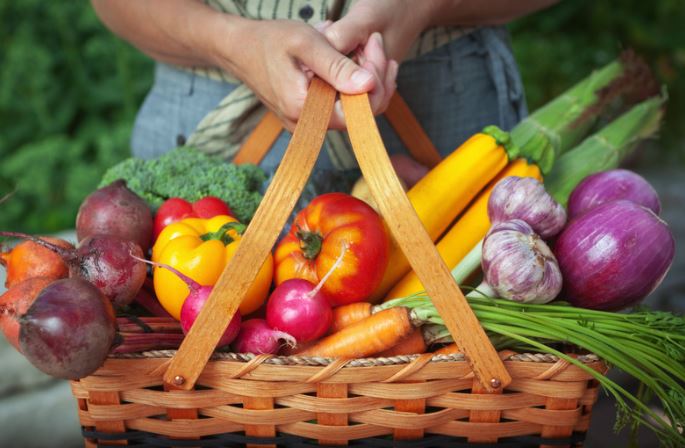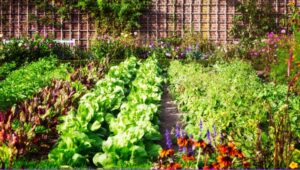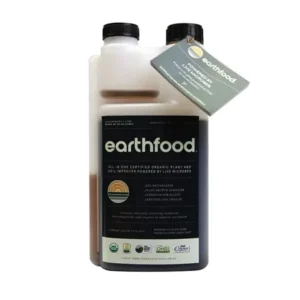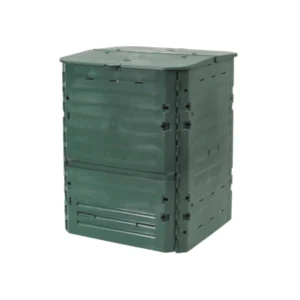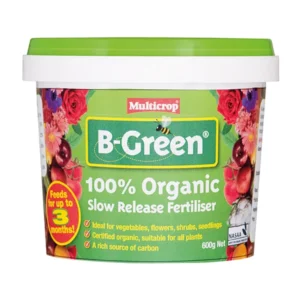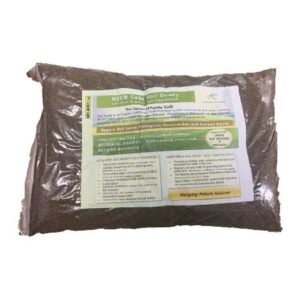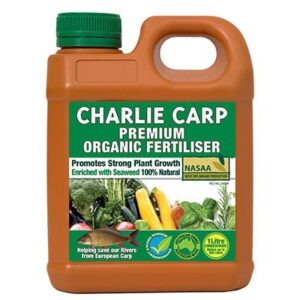Organic gardening is a concept that has been gaining traction among homeowners, environmentalists, and health-conscious individuals alike. The practice involves cultivating plants without the use of synthetic pesticides, herbicides, or fertilizers. But why is organic gardening such a big deal? In this comprehensive guide, we will delve deep into the manifold benefits of organic gardening — both for your health and the environment. From improving your physical well-being to contributing to environmental sustainability, there’s a lot that organic gardening offers. We’ll also sprinkle in some useful tips and recommendations on how to kickstart your own organic garden, alongside some top-notch organic gardening products to help you get started.
Table of Contents
- 1. Why Organic Gardening Is Crucial for Your Health
-
-
- Lower Exposure to Harmful Chemicals
- Richer in Nutrients
- Boosting Your Immune System
-
- 2. The Environmental Upsides
-
-
- Reducing Soil and Water Contamination
- Promoting Biodiversity
- Combating Climate Change
-
- 3. Cost Benefits of Organic Gardening
-
-
- Cutting Down on Synthetic Fertilizers
- Grow Your Own Produce
-
- 4. The Joy and Rewards of Organic Gardening
-
-
- Stress Relief and Exercise
- Bonding Over Gardening
-
- 5. How to Start Your Own Organic Garden
-
-
- Location and Soil
- Picking the Right Plants
- Enriching the Soil Naturally
- Natural Pest Control
- Proper Watering Techniques
-
- 6. Summary
- 7. Additional Resources
Why Organic Gardening Is Crucial for Your Health
Lower Exposure to Harmful Chemicals
The first and foremost reason why you should consider organic gardening is your health. Standard gardening methods often involve the use of synthetic pesticides and fertilizers. These chemicals can seep into the produce and, eventually, into your system. By switching to organic gardening, you considerably reduce your exposure to these harmful chemicals. You can even make use of Earthfood Concentrate to ensure your soil is as natural as possible.
Richer in Nutrients
Studies have shown that organic produce tends to be richer in essential nutrients and antioxidants compared to their conventionally grown counterparts. These compounds are crucial for various bodily functions and can fortify your immune system. This reduces your susceptibility to chronic diseases in the long run.
Boosting Your Immune System
Building on the previous point, the nutrient-dense produce from your organic garden can significantly boost your immune system. From vitamin-rich tomatoes to antioxidant-packed herbs, the variety is endless. When you grow your own food, you control the quality and the inputs that go into it. Organic all-purpose plant food can be an excellent supplement to enrich your soil and, subsequently, your produce.
The Environmental Upsides
Reducing Soil and Water Contamination
One of the most significant benefits of organic gardening is its negligible impact on the environment. Traditional gardening techniques usually involve the use of a plethora of chemicals, which end up contaminating the soil and water bodies. Organic gardening, with its natural fertilizers like Dynamic Lifter Organic Lawn Food, helps you bypass this issue.
Promoting Biodiversity
Biodiversity is essential for a balanced ecosystem. Traditional gardening methods that use synthetic pesticides often kill beneficial insects along with the pests. Organic gardening uses natural pest control methods, such as companion planting, to maintain a more diverse insect population in your garden. This results in a balanced ecosystem where no single species dominates, thus promoting biodiversity.
Combating Climate Change
Believe it or not, your tiny garden can make a difference in the fight against climate change. Organic gardening practices improve soil health, thereby aiding in carbon sequestration. Healthier soils have a better capacity to capture and hold carbon dioxide, one of the primary greenhouse gases responsible for climate change.
Cost Benefits of Organic Gardening
Cutting Down on Synthetic Fertilizers
When you opt for organic gardening, you take a crucial step towards being more sustainable, both ecologically and financially. By using organic fertilizers, you can cut down on the cost of purchasing synthetic fertilizers, which can get expensive over time. Composting kitchen waste is a cost-effective way to create rich soil. Products like Bokashi One Compost Mix can further help in breaking down organic waste, saving you money and reducing landfill waste. According to Healthline, the savings you make by growing your own food can be substantial over time.
Grow Your Own Produce
The appeal of having fresh vegetables right from your garden isn’t just in the taste but also in the savings. When you grow your own produce, you reduce the trips you need to make to the grocery store. Plus, organic fruits and vegetables often come with a premium price tag at the store. Growing your own can thus save you a significant amount. In fact, HelpGuide.org suggests that the benefits of consuming organic produce extend beyond just physical health, potentially contributing to better mental well-being through the sense of accomplishment and autonomy.
The Joy and Rewards of Organic Gardening
Stress Relief and Exercise
Gardening, in general, has been known to reduce stress levels, and organic gardening is no different. Digging, planting, and even the simple act of touching soil can stimulate the release of mood-boosting endorphins. Plus, the physical activities involved in gardening are an excellent form of low-impact exercise. According to Healthline, gardening can help you connect with the earth, thus grounding you and helping to reduce stress levels.
Bonding Over Gardening
Gardening can be a fantastic social activity to do with family and friends, fostering better relationships. Teaching your children or friends how to take care of plants can be a fulfilling experience. It offers an opportunity to bond over something that not only brings joy but also educates about sustainability and environmental care.
How to Start Your Own Organic Gardening
- Location and Soil: Before you dive into organic gardening, you must select an appropriate location. Choose a spot that gets adequate sunlight and has well-draining soil. If you’re planning to grow a variety of plants, make sure you allocate enough space for each type, taking their growth patterns into account. Your soil is another critical factor; testing it can provide valuable insights into its pH levels and nutrient content. You might want to consider using EcoBoost Liquid Compost Concentrate to enrich the soil naturally.
- Picking the Right Plants: One of the joys of organic gardening is the sheer variety of plants you can grow. However, if you’re new to gardening, it might be a good idea to start with plants that are relatively easy to care for. Plants like tomatoes, lettuce, and herbs not only require minimal maintenance but also yield produce quickly. As you gain more confidence and experience, you can expand your organic garden to include more complex plants.
- Enriching the Soil Naturally: Before you begin planting, it’s essential to prepare your soil. Natural soil enrichment is an integral part of organic gardening. Products like Dynamic Lifter Organic Lawn Food can add the essential nutrients your plants will need to thrive. You can also make your compost using kitchen waste and organic materials. Composting not only recycles organic waste but also enriches your soil, making it more fertile and better at holding moisture. According to Healthline, composting can further contribute to sustainability and offer more control over the soil’s nutrient content.
- Natural Pest Control: Pests are inevitable, but synthetic pesticides are not. Organic gardening encourages natural methods for pest control. Techniques such as companion planting — where certain plants are grown together to deter pests — can be highly effective. For instance, planting basil alongside your tomatoes can repel tomato hornworms. Crop rotation is another effective strategy; it involves changing the location of certain types of plants each year to disrupt the lifecycle of soil-borne pests and diseases.
- Proper Watering Techniques: Watering might seem like the simplest task, but it does require some consideration. Too much water can lead to root rot, while too little can stress the plant. Drip irrigation and soaker hoses are effective ways to water your plants without wasting any. They deliver water directly to the plant’s roots, reducing evaporation and saving you water in the long run. HelpGuide.org mentions the importance of proper watering techniques in organic gardening for both water conservation and plant health.
Summary
Organic gardening is more than a trend; it’s a commitment to a healthier lifestyle and a more sustainable planet. From improving your physical and mental well-being to promoting ecological balance, the benefits are numerous and far-reaching. As we’ve seen, organic gardening can be a cost-effective, rewarding, and environmentally responsible choice.
Additional Resources
For further information and products, feel free to explore these links:




